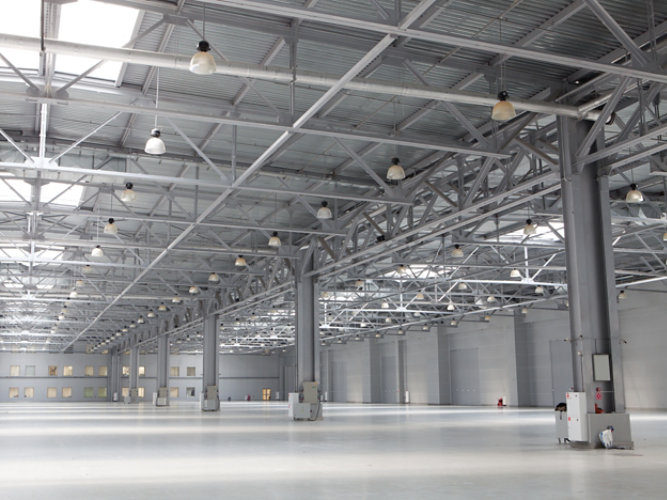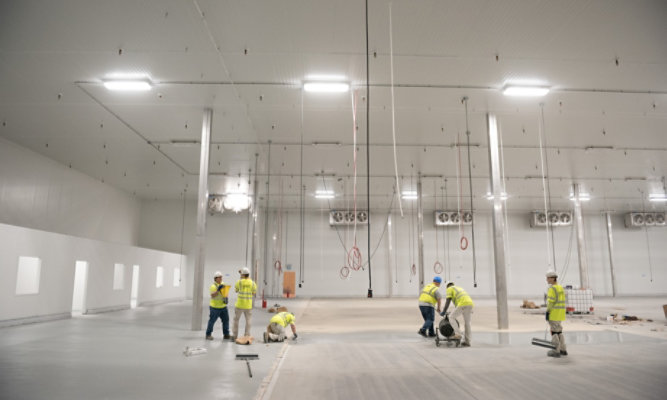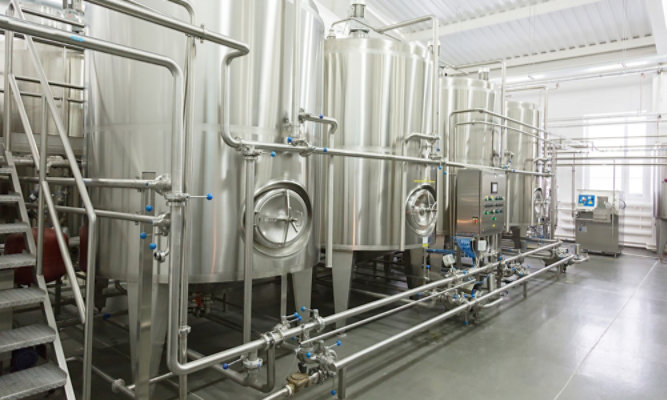What Are Epoxy Hardeners and Why Are They Used?
At their most basic, installation of epoxy floor coatings involves combining an epoxy resin with a hardening agent, which then chemically react with one another before being applied over a prepared concrete substrate. Depending on the specific coating, the epoxy base resin may be clear or pre-pigmented. Some clear epoxy resins have compatible color packs that can be added to tint the clear coating at the job site. Others employ special aggregate components to enhance specific performance properties, such as extra impact resistance, compressive strength or slip-resistance. Multicolored elements—including blended vinyl chips and ceramic-coated quartz—are popular decorative additions.
Learn More or Get a Free Flooring Evaluation

The Function of the Epoxy Hardener
On their own, epoxy resins are very stable fluids with relatively long shelf lives. It is only when mixed with an epoxy hardener that they can undergo the chemical reaction needed to cure properly. If applied onto a floor without the hardener, the resin would remain a near liquid indefinitely and could not transform into a durable flooring system. Unlike paints, which rely on the evaporation of moisture content to eventually harden into a thin film, an epoxy floor coating achieves its high performance, protective characteristics by undergoing a controlled chemical reaction that occurs between carefully calibrated resin and hardener components.
Once the different elements of the floor coating are mixed together, some may require “induction,” wherein they are left for 15-30 minutes to react to each other and allow the chemical process to take place before installation. Still other systems may have very short pot lives that demand that the blended liquid be immediately “ribboned” out onto the prepared concrete substrate and spread, since leaving the mixed product as a mass in the bucket would further accelerate the reaction speed. When this does occur, the container and contents can become very hot and even begin to emit smoke as a result of the extreme molecular activity. While individual component may be kept on the shelf for months or longer, once the epoxy coating and hardener have been mixed, the contractor may have only 15 minutes to install the combined material. Multiple layers of product are often installed, with the next coating being applied within a recoat window of anywhere from 4 to 24 hours. The method of application may vary, based on the chemical makeup of the specific formula, as well as the applied thickness and cure time. With so much skill and knowledge required, it only makes sense that many commercial grade epoxy and other resinous floor coatings systems are best installed by highly experienced specialty flooring contractors.
How Formula Impacts Performance
The amount and type of hardener needed depends on the type of epoxy resin being used. Do-it-yourself epoxy paints (different from industrial-grade floor coatings) are often water-based and rely mainly, if not exclusively, on evaporation to harden and dry the final product. These products may require little or no hardener, and are often comprised of light-duty latex paint with some added epoxy resin content.
Industrial quality epoxy floor coating resin, though a liquid, can be 100% solids and relies on a compatible catalyzing hardener to create the tightly crosslinked molecular structures that impart incredible strength, resilience and virtual impermeability into the cured film. The type and amount of hardener used can vary, depending on the specific product being installed. The term “epoxy” refers not to a single specific substance, but rather to a wide range of prepolymer and polymer groups, and the type of epoxy used will impact the amount and type of hardener needed. Manufacturers' polymer scientists use the molecular weight of an epoxy floor coating formula and other methods to determine how much hardener is needed for an effective cure. Different formulations have different characteristics, with some systems able to handle heavier loads, greater temperature fluctuations, higher levels of moisture, or increased chemical resistance.
Learn more about the different flooring options for your project—contact us to connect with your local flooring expert.
Discover More
Industry Expertise and Innovation
See how we help customers find customized solutions for their project and application challenges.
System Lookup
Find out more about our innovative floor systems for a variety of industries.
FIND A SYSTEM
